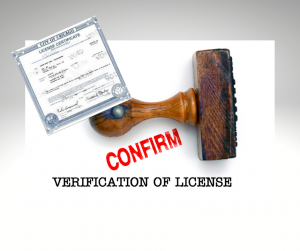In the past two years about 30,000 new businesses were started in Illinois. Most of those new business had to get a specific license for their particular type of business. Not all businesses do, but many will need an Illinois Business License specific to their occupation, which vouches for the fact that you’re qualified to perform a certain type of skill and reassures customers that you will be accountable for your work.
For starters, you will need a Certificate of Registration common to all types of businesses. Then, you will need to drill down to your particular type of occupation, perhaps using this page on the Illinois Department of Financial and Professional Regulation website.
Each entry on that page offers up not only the registration application itself but also information about relevant notices, resources and publications, laws and rules, and applicable board particulars, as well as a “contact us” button to e-mail questions about the profession.
Well over 100 types of occupations require such a license from the state, including audiologists, chiropractors, dental hygienists, funeral directors, interior designers, locksmiths, nail technicians, pawnbrokers and shorthand reporters, to name just a few. Fees vary from as little as $75 for architects all the way up to $2,500 for real estate appraisal firms.
Your application might need to include supporting documents establishing certain bona fides, such as that you’ve attended prelicensure education and field events, in the case of home inspectors; that you’ve completed a bachelor’s degree, if you want to become a dietician; or that you’ve passed a required exam, if your ambition is to be a barber.
Cities like Chicago also have their own requirements, as does the federal Small Business Administration and various other federal agencies that regulate lines of business germane to their area of focus.
For example, the Department of Agriculture issues federal licenses to food-related businesses; the Alcohol and Tobacco Tax and Trade Bureau provides them for a business in which alcohol will be made, sold or imported; the Federal Maritime Commission covers maritime transportation; and the Federal Communications Commission handles radio, television and satellite firms.
Given all the forms to fill out and considerations to account for, which also can include obtaining required insurance depending on the type of company, aspiring small business owners are well-advised to retain an experience small business attorney to help them get started.
We at Bellas & Wachowski have helped thousands of small businesses get off the ground in the past 46 years and have plenty of experience guiding entrepreneurs through the thicket of paperwork and requirements so they can open their doors and thrive. Every business needs legal counsel they can trust and we are “The In-House Counsel for Small Business.”
 Chicago Business Attorney Blog
Chicago Business Attorney Blog


